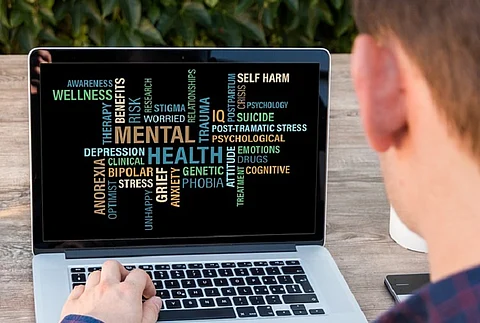

After the sinister 'game' Blue Whale Challenge is suspected to have claimed three lives in India the Indian government on Tuesday directed Google, Facebook, WhatsApp, Instagram, Microsoft and Yahoo to remove links to the Blue Whale challenge immediately.
"Instances of children committing suicide while Blue Whale Challenge have been reported in India... You are hereby requested to ensure that any such link of this deadly game in its own name or similar game is immediately removed from your platform," Ministry of Electronics and IT said in a letter to the internet majors.
The Blue Whale challenge, which pushes teens through a series of 50 tasks that ends in suicide has understandably alarmed the authorities, who are now scrambling to ban it.
The issue has even come up for debate in the Parliament, and just recently, Kerala Chief Minister Pinarayi Vijayan wrote to the Centre asking for the Blue Whale suicide game to be blocked. The Karnataka government has also written to the Centre about it.
Government directs Google, Facebook, WhatsApp, Instagram, Microsoft and Yahoo to immediately remove links of Blue Whale Challenge Game.
— ANI (@ANI) August 15, 2017
While it is commendable that the government is taking quick steps to address a phenomenon that preys on vulnerable children, their premise may be flawed, because the Blue Whale challenge is anything but a game. While the words ‘challenge’ and ‘game’ masks it as a harmless smart phone game it isn't that simple.
For instance, if you go to Google Play Store and key in ‘Blue Whale Challenge’, you will see several results. But most of them are actual games and not sinister death or suicide groups. It is also possible to search for the ‘Blue whale suicide game’ on the Play Store, but it is unlikely that you will get any direct results.
Reports suggest that groups which are actually targeting teens may not even have ‘blue whale’ in their names.
Philippe Budeikin, administrator of one such Blue Whale suicide group in Russia, told Mikhail Grachev for St. Petersburg.ru that the group was known by the name ‘F57’. The name has nothing to do with the Blue Whale, or the suicide, or the challenge. Many teens who were led to committing suicide by him (which included at least 15 teenage girls), had posted the seemingly innocuous hashtag #F57 in their social media posts.
Other names by which these death groups operate are ‘A Silent House’, ‘A Sea of Whales’ and ‘Wake Me Up at 4:20am’, reports Prasid Banerjee for Digit. If you try to search any of these names on Facebook, the results are not related to the suicide game at all.
If you search ‘Blue Whale Challenge’ on Facebook and Instagram, both platforms give an advisory against self-harm and offer resources for seeking help. Instagram does have the option of ‘See posts anyway’, and Facebook displays the search results too. While some groups by that name do exist on Facebook, it remains to be seen if they are indeed suicide groups.
Screenshot/Instagram
Screenshot/Facebook
The problem with banning all links about the Blue Whale challenge is that it may not scratch the surface of the problem at all. Firstly, it is not a game which one can play just because they want to. You can only be part of the game if an administrator contacts you and enlists you as a potential whale, or candidate.
Secondly, the challenge operates covertly and underground, because, in order for it to work, the victims need to be isolated, which will not happen if everyone can see what is happening. While renditions of the 50 tasks that are part of the game are available online, the challenge cannot be ‘played’ unless you finish each task and send proof to the administrator, who will then assign the next task.
What is more worrying perhaps is the lack of conversations about teenage mental health which should ideally be catalyzed by the threat posed by such a phenomenon.
A simple search through Facebook groups, Instagram and Twitter reveals a few posts where people are looking to play the game. On Twitter, especially, a number of people claim to be ‘whales’ and have tweeted asking curators to find them.
In one Facebook group, there are a number of requests from people asking how they can ‘play’. On one post, a user asks why would anyone want to play the game. One of the replies reads, “Because life is horrible anyway”.
Screenshot/Twitter
Screenshot/Facebook
Teenagers, because of the physical and mental changes they go through in those years, are a vulnerable demographic, Vandhana, a clinical psychologist had told TNM earlier. The only way a teen would get hooked to self-harm, isolation and ultimately suicide is if they were already going through some form of depressive episode. Additionally, they would only seek validation online if they looking to escape from the real world due to some issues, she added.
The only way to deal with this, Vandhana advised, was to create conversation around mental health and let children know that they are not alone. This, sadly, the government is silent on.